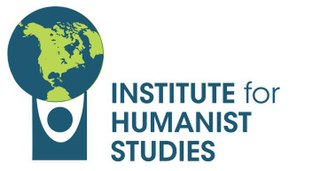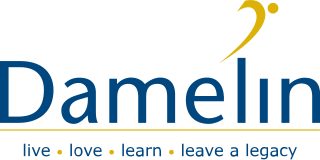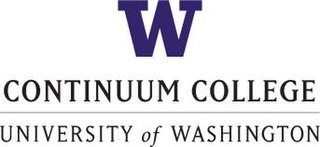The Continuum of Humanist Education is a project run by the Institute for Humanist Studies. It has a faculty, staff, and bookstore. It offers courses in education about the history and practise of Humanism. The introductory course is offered freely.
They adopt a commonly used motto in learning: Sapere aude.

A community college is a type of undergraduate higher education institution, generally leading to an associate degree, certificate, or diploma. The term can have different meanings in different countries: many community colleges have an open enrollment policy for students who have graduated from high school, also known as senior secondary school or upper secondary school. The term usually refers to a higher educational institution that provides workforce education and college transfer academic programs. Some institutions maintain athletic teams and dormitories similar to their university counterparts.

Liberal arts education is the traditional academic course in Western higher education. Liberal arts takes the term art in the sense of a learned skill rather than specifically the fine arts. Liberal arts education can refer to studies in a liberal arts degree course or to a university education more generally. Such a course of study contrasts with those that are principally vocational, professional, or technical, as well as religiously based courses.

Secular humanism is a philosophy, belief system, or life stance that embraces human reason, logic, secular ethics, and philosophical naturalism, while specifically rejecting religious dogma, supernaturalism, and superstition as the basis of morality and decision-making.

Renaissance humanism was a worldview centered on the nature and importance of humanity, that emerged from the study of Classical antiquity. This first began in Italy and then spread across Western Europe in the 14th, 15th, and 16th centuries. During the period, the term humanist referred to teachers and students of the humanities, known as the studia humanitatis, which included the study of Latin and Ancient Greek literatures, grammar, rhetoric, history, poetry, and moral philosophy. It was not until the 19th century that this began to be called humanism instead of the original humanities, and later by the retronym Renaissance humanism to distinguish it from later humanist developments. During the Renaissance period most humanists were Christians, so their concern was to "purify and renew Christianity", not to do away with it. Their vision was to return ad fontes to the simplicity of the Gospels and of the New Testament, bypassing the complexities of medieval Christian theology.

Humanists UK, known from 1967 until May 2017 as the British Humanist Association (BHA), is a charitable organisation which promotes secular humanism and aims to represent "people who seek to live good lives without religious or superstitious beliefs" in the United Kingdom by campaigning on issues relating to humanism, secularism, and human rights. It seeks to act as a representative body for non-religious people in the UK.

North Jakarta Intercultural School (NJIS), formerly North Jakarta International School, is a private international school in Kelapa Gading, Jakarta, Indonesia. The school is an Internation Baccalaureate Continuum international school with an American orientation.

Benedetto Cotrugli was a Ragusan merchant, economist, scientist, diplomat and humanist.

The Institute for Humanist Studies (IHS) is a think tank based in Washington, DC, USA, that says it is "committed to information and practices meant to address the sociopolitical, economic and cultural challenges facing communities within the United States and within a global context." IHS, consistent with the American Humanist Association and the Humanists International, says that it understands humanism to be “a progressive philosophy of life that, without theism and other supernatural beliefs, affirms our ability and responsibility to lead ethical lives of personal fulfillment that aspire to the greater good of humanity.”

Damelin is a private college founded in 1943 by Benjamin Damelin. It has 9 campuses in South Africa and is owned by Educor group. Damelin offers degrees, diplomas and other higher qualifications, but is considered a college instead of a university due to the regulations for tertiary institutions in South Africa. Damelin is the oldest and most profitable education subsidiary owned by Educor. By November 2012, over one million students had graduated from Damelin. In March 2024 it was deregistered for non-compliance along with other institutions under the Educor umbrella, CityVarsity, Intec and Lyceum College. The group has been accused by the Minister of Higher Education and Training of "unethical conduct, dysfunctional practices, bribery and other elements of corruption."
A liberal education is a system or course of education suitable for the cultivation of a free human being. It is based on the medieval concept of the liberal arts or, more commonly now, the liberalism of the Age of Enlightenment. It has been described as "a philosophy of education that empowers individuals with broad knowledge and transferable skills, and a stronger sense of values, ethics, and civic engagement ... characterized by challenging encounters with important issues, and more a way of studying than a specific course or field of study" by the Association of American Colleges and Universities. Usually global and pluralistic in scope, it can include a general education curriculum which provides broad exposure to multiple disciplines and learning strategies in addition to in-depth study in at least one academic area.

The Humanist Institute is a training program for leaders within the humanist, and secular humanist movement.

Shailesh J. Mehta School of Management is a public business school and part of Indian Institute of Technology Bombay. SJMSOM was established in 1995. In 2000, the school was renamed to Shailesh J. Mehta School of Management, in honor of Dr. Shailesh J. Mehta who is a Mechanical Engineer graduate of IIT Bombay The director of school is S.N. Rao.

Humanism is a philosophical stance that emphasizes the individual and social potential, and agency of human beings, whom it considers the starting point for serious moral and philosophical inquiry.

Open education is an educational movement founded on openness, with connections to other educational movements such as critical pedagogy, and with an educational stance which favours widening participation and inclusiveness in society. Open education broadens access to the learning and training traditionally offered through formal education systems and is typically offered through online and distance education. The qualifier "open" refers to the elimination of barriers that can preclude both opportunities and recognition for participation in institution-based learning. One aspect of openness or "opening up" education is the development and adoption of open educational resources in support of open educational practices.

Julian Baggini is a philosopher, journalist and the author of over 20 books about philosophy written for a general audience. He is co-founder of The Philosophers' Magazine and has written for numerous international newspapers and magazines. In addition to writing on the subject of philosophy he has also written books on atheism, secularism and the nature of national identity. He is a patron of Humanists UK, an organization promoting secular humanism.

The University of Washington Continuum College was founded in 1912. The Continuum College is the continuing education and professional development unit of the University of Washington (UW), in Seattle, Washington.

Humanism is an approach in study, philosophy, or practice that focuses on human values and concerns. Articles related to humanism include:
Norway is a comparatively secular nation which no longer has a state religion, though 68.7% of the 5.4 million population belong to the Church of Norway.
Bogaerts International School is an internationally minded, family-oriented K-12 school located in Uccle. This area is classed as semi-urban, and has a natural green area. The school is located at the doorstep of Brussels, but the campus itself is a wooded area. The school offers an education to both local Belgian families and families from the world over.
First Unitarian Society of Minneapolis is a non-theistic humanist community and member of the Unitarian-Universalist Association located at 900 Mount Curve, Minneapolis, Minnesota. Once led by the influential minister John H. Dietrich who is known as the "Father of Religious Humanism," First Unitarian Society of Minneapolis is considered in today's terminology the "birthplace of Congregational Humanism."